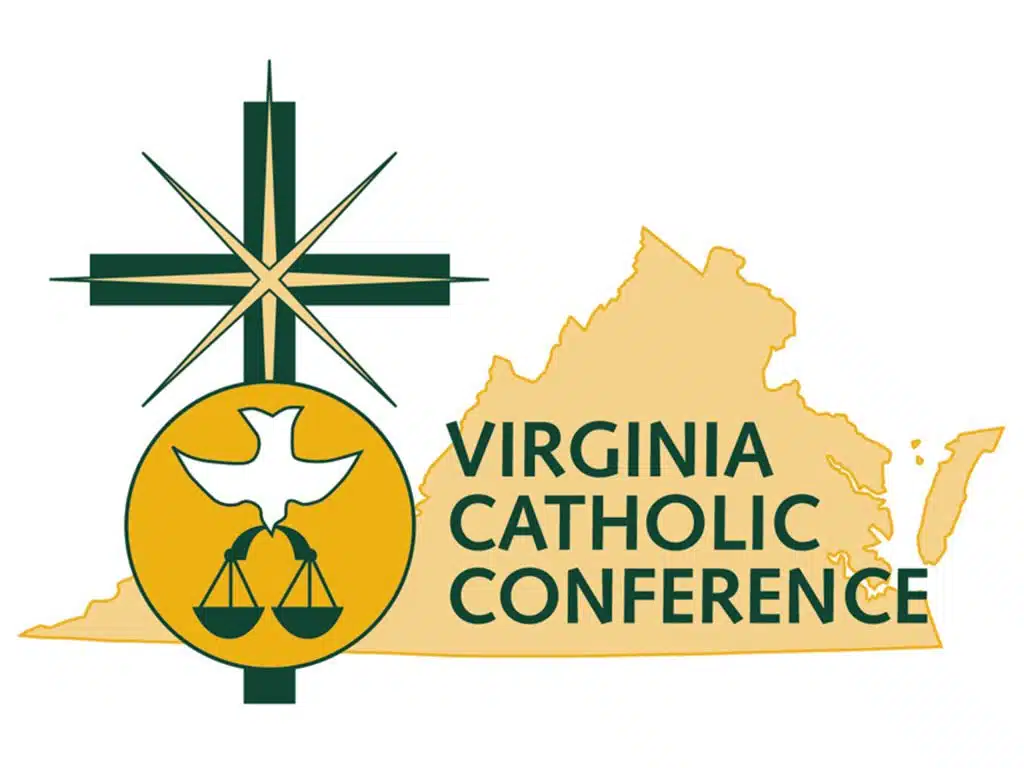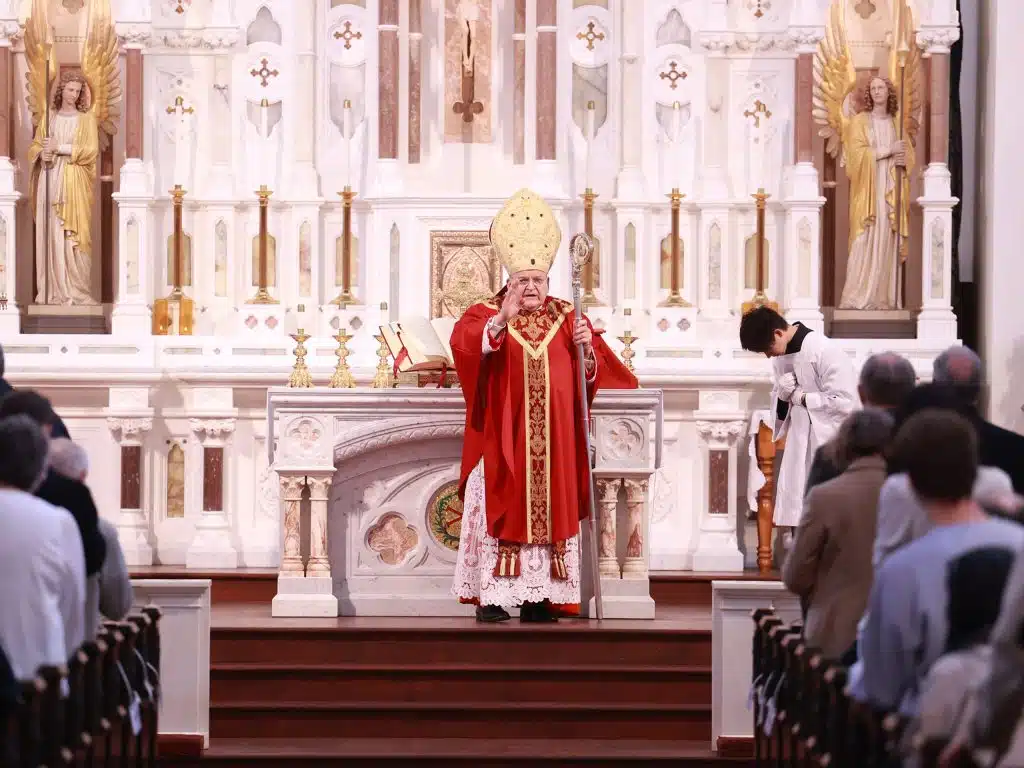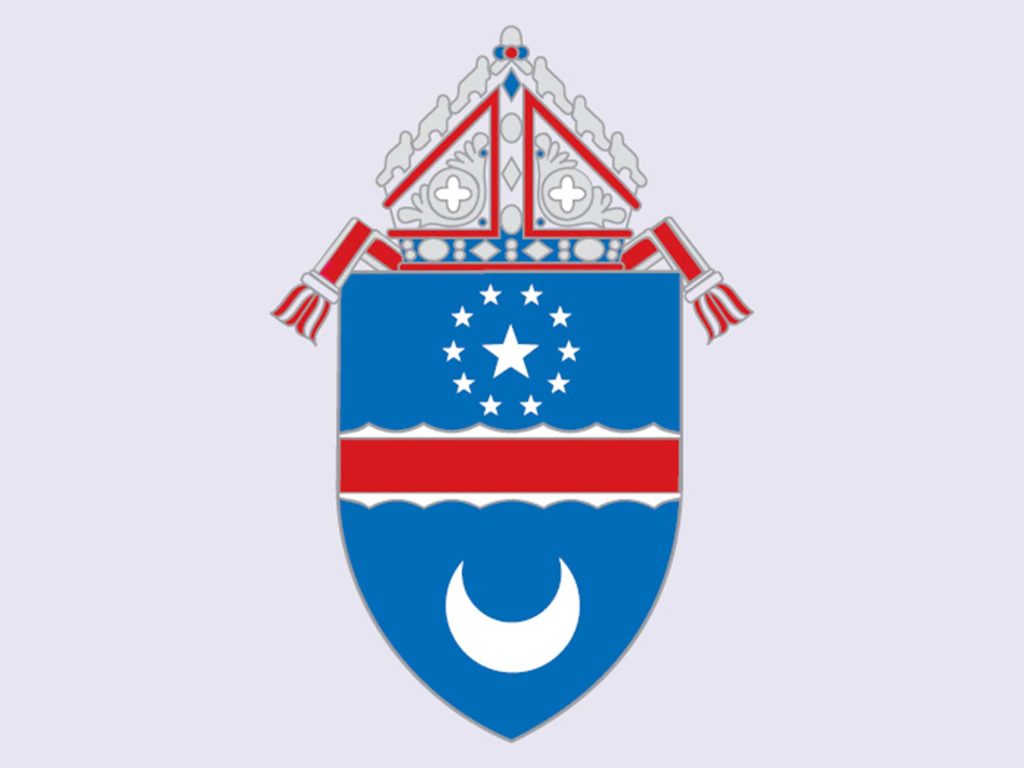Dr. Marie Anderson’s face radiates excitement as she stands at the bedside of a longtime patient in the midst of early labor. Ushering new life into the world is Anderson’s passion, which makes the Inova Fair Oaks Hospital’s birthing center her happy place. “This is your day,” she tells her patient encouragingly before leaning over to give her a hug.
After 22 years working for Tepeyac OB-GYN in Fairfax, the 69-year-old Anderson plans to retire at the end of the year to spend more time with her grandchildren. Her tenure at the practice has had a great impact, said Dr. John Bruchalski, founder. “She has brought so much to Tepeyac, including a heart open to not only hearing God’s will in her life, but then acting on it,” he said. “Marie has taught me so much and wasn’t afraid to call me to task when I fell short. I will always hold on to memories of operating together on challenging cases and caring for our patients all these years.”
Anderson, who grew up in Marshall, Va., first fell in love with obstetrics when she was pregnant with her children. “I’d go to my OB appointments and (would) be looking at the office to see how it worked. When I went to the hospital, I felt like a little spy. I was looking at all the doctors and nurses and wanting to be one,” she said. “I wanted that so much.”
Though she took pre-med classes in college, she came to the conclusion that the many years of schooling needed to become a doctor could interfere with her plans to have a family. So she became a dental hygienist instead. She and her husband, David, met at dental school and were married in 1973.
Her plan to avoid mixing family life and medical school didn’t quite pan out. She entered Georgetown University School of Medicine in Washington in 1985 as a mother of two children, Kristen Marie and David. She became pregnant with her third child, Karl, in her second year. “I’d say to (Karl), you should know a lot about medical school, you went with me for nine months,” said Anderson.
Though raised Catholic, Anderson fell away from the faith during her residency. “To me at that time, it felt impossible to be a practicing Catholic in that field,” she said. As she gradually came back to the church, she found the dictates of her conscience and of her superiors increasingly at odds. At one practice, she tried not to perform some abortions but was still expected to abort unborn babies with a prenatal fatal diagnosis. “The thought of many OBs across the board is you terminate that life and you try again for a better outcome later. Why waste time — this baby is a nonstarter,” she said.
Anderson said her anxiety seemed to manifest itself as dark clouds that started at the periphery of her vision and slowly moved in front of her face. She finally went to confession. A few days later, she was fired from her job. “It was becoming obvious I didn’t practice the way (my boss) did,” said Anderson. Her new practice was a little better, but it was still difficult to avoid some aspects of the works, such as tubal ligations — a type of sterilization.
Stay connected to your Catholic community. Subscribe to the award-winning Arlington Catholic Herald.
One day after Mass, she saw a Catholic Herald article about Bruchalski pinned to the bulletin board in the vestibule. She had been advised by her priest to get in contact with him, but never had. “I read the whole article — I read it so thoroughly that the next Mass was letting out by the time I finished,” she said.
She was astonished to see a practice that respected the church’s teaching on human sexuality and the sanctity of life. More than the things they didn’t do, she was amazed by the things they did. Instead of prescribing artificial birth control, they provided information on natural family planning. Instead of providing abortions, they worked with pregnancy centers to help pregnant women in need.
“I didn’t want my professional contributions to be defined by all the things I didn’t do, (so) I realized I needed to join (a place) where faith is at the center of the medical practice,” she said. “And I was amazed to find it was possible to do that.” She talked with Bruchalski, who told her a position in his practice had become available. She began working at Tepeyac in 1997.
Anderson is proud of the many things she’s been able to accomplish over the years. Besides delivering countless babies, she organized the practice’s chart system, improved quality assurance and implementation, and developed a call schedule. In 2007, she founded the Catholic Medical Association Guild of Northern Virginia, an organization that aims to educate, form and support local medical professionals.
Her proudest accomplishment was inspired by tragedy — the sudden death of her 25-year-old daughter in a traffic accident. After that devasting loss, Anderson began to identify more with the patients whose babies were likely to die shortly after birth. “The time they had to spend with their child was very short and I did that — I think 25 years is very short when you look at a lifetime,” said Anderson.
So she and the other Tepeyac staffers created the Kristen Anderson Perinatal Hospice Program, which provides medical, emotional and spiritual support to families facing a poor perinatal diagnosis. “We help them in any way that we can, always keeping in mind that this baby is a child of God and is as important as any one of us,” she said. “It’s very hard (but) I heal more every time I help one of them.”
Treating the whole person has been one of the goals of Anderson’s career. Sometimes the technical aspects of the job, such as electronic record keeping, can make her conversations with patients more impersonal than she’d like. But she relies on her faith to keep what’s important at the forefront. “We aren’t just treating a pap smear or a gynecological exam,” she said. “We’re treating a person who has asked us to be involved in their healthcare.”


